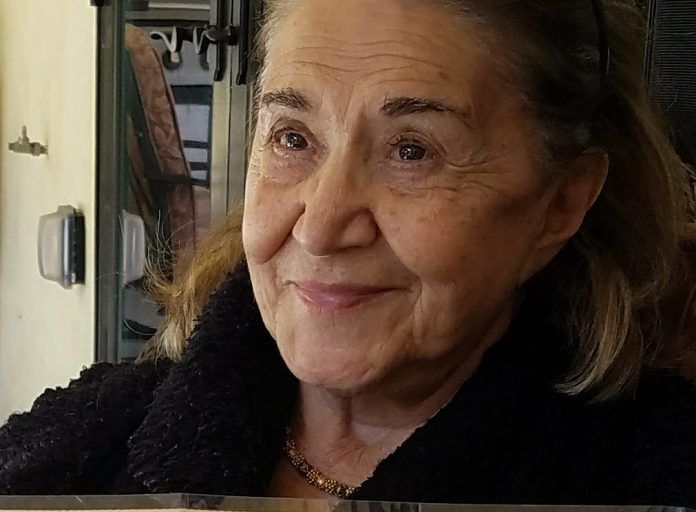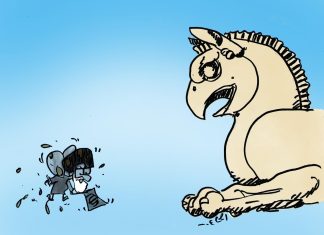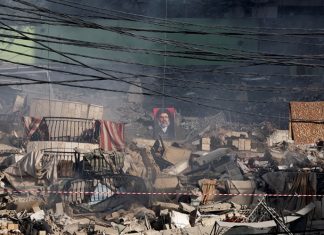By Julie Ershadi
Mahin Afkhami worked for an affiliate of Iran’s information and tourism ministry in the 1970s when the Revolution broke out. She and her husband, who had four children studying at universities in the U.S., found themselves unable to send them money to apply for green cards. The couple traveled west to sort out the status of their children’s visas, in what they believed would be a brief trip. They ended up leaving behind everything they had in Iran: their belongings, their wealth, and life as they knew it.
That was 38 years ago. Today, like the hundreds of thousands of Iranians who lived through the revolution and moved abroad, Afkhami speaks proudly of the efforts she made to rebuild her life and ensure her children’s success. Yet as she has advanced in years, she has made the decision to move to an assisted living facility rather than rely on her offspring.
Unlike many elders in the Iranian expatriate community who live with their adult children, Afkhami – who shies away from disclosing her age – is a resident of Noor Active Living, an assisted living facility located in Santa Clara, California. The idea behind Noor is to provide an environment that would be familiar to an Iranian population of patients, who often feel isolated receiving care outside of their home country and away from their families.
“My children want me to go and live with them, but I refuse,” she says in a recent afternoon. “I would be interrupting their lives. They come to visit me and I go over there, but I’d rather have my privacy and live here.”
Noor Active Living was founded with the purchase by a group of philanthropists of an existing assisted living center in need of major renovations in 2009. The idea was to create a place for elderly Iranians in the United States, based on the Kahrizak Charity Foundation, a nonprofit that provides care and a living environment for the elderly and handicapped in Iran.
The driving force at Noor is its executive director, Nazila Safari, a medical doctor in the U.S. and Iran. Like virtually all of the residents and staff at Noor, Safari is an Iranian immigrant who had to start over in the United States.
Inside the Noor facility, the walls are decorated with calligraphy and traditional paintings. A small study contains a library of books in Persian, including War and Peace in translation, a book on Afghan cuisine, history books, and poetry. On all the floors are authentic Persian rugs, donated by one of the center’s patrons.
In the dining hall, the Iranian-born chef prepares a lunch of ghormeh sabzi (a herb-based stew) for the 12 residents and staff members. Even ta’arof, the Iranian form of etiquette, is present, as when the site manager invites a visiting reporter to stay for lunch.
Outside is a patio lined with persimmon trees and palm fronds. There, accompanied by three caretakers and another resident, Afkhami tells her story of leaving Iran and coming to the United States. She produces an issue of Kayhan International, dated June 3, 1976. Page 3 features her promotion to deputy director for technical and planning affairs at the Tourism Facilities Compan of Iran.
The group is seated at a patio table spread with Iranian tea, a box of gaz nougat (candy) fresh from Esfahan, and other traditional snacks. Everyone exchanges knowing glances and nods somberly as Afkhami describes how hard it was to rebuild her and her family’s lives from the ground up.
“I came here with just one small suitcase of things for myself because I didn’t have plans to stay,” she says. “But things got worse. Me and my husband were both in good positions over there, so we would’ve been killed. We never went back.”
“The children were working, going to school, and had a lot of expenses,” she recalled. “It was just the six of us working. Hard.”
Noor’s executive director Safari qualified as a doctor in Iran. But when she came to the United States 22 years ago, her degree was not recognized, and she had to attend U.S. medical school to continue her practice. While in school, she took a job as a live-in nurse with an elderly couple.
“At that time, I didn’t have anybody here,” she says. “So they became my parents, my grandparents, my whole family.”
Alone in a foreign country, she developed a close bond with the family that would change the course of her life.
“Their kids moved out,” she recalls. “I got married and took the elderly woman with me until I could find a place to put her. I noticed all of these assisted living places. I was looking for which one would give her as much love and support as I was giving her.”
It was during her search for a care facility that Safari discovered a pressing situation: here and there, solitary elderly Iranians living in facilities where they related to no one. “There would be one or two Iranians. When they would see me, they would say, ‘Oh my God, you speak Farsi! Nobody understands me here, I don’t like the food – this is not good!’ It was bothering me,” she says.
Safari started going to assisted living homes in the little free time she had between work and medical school. She wanted to spend time with these elderly Iranians who had been alone up until then. She would sit with them at the care facilities where they lived, translate their words when necessary for the nurses, and spend time with them when their children weren’t available.
As she became more deeply involved in the field of elderly care, Safari helped to open a Sunrise Senior Living branch in Sunnyvale, California, a town adjacent to Santa Clara. According to the company’s website, Sunrise operates internationally with 315 facilities in the United States, Canada and the United Kingdom.
Opening the Sunnyvale branch got Safari noticed by a group of directors hoping to start their own assisted living community, a not-for-profit facility created with the needs of elderly Iranians in mind. They asked her to help open Noor in 2009, and she agreed. She supervised renovations on the building that the group had acquired, but declined to run the facility, asking them instead to find someone else as she pursued her own professional activities.
After the completion of renovations in 2011, the facility sat unused for two years while the board searched for a substitute for Safari. They approached her again, this time with success. Safari has been director of Noor Active Living since 2013.
As a not-for-profit organization, Noor relies on donations from board members and community groups, as well as the fees charged to its residents. These funds cover expenses, and do not earn a profit for Safari and her staff, which is composed almost entirely of recent Iranian immigrants. The overarching aim, they say, is the respect, comfort and longevity of their patients, who have traveled so far and, in many cases, given up a great deal in the face of political turmoil in Iran.
“They had their independence, their house, their job, their respect in Iran,” Safari says. “They were looking forward to retiring there, going to the supermarket and speaking their own language, negotiating all of that. All of a sudden, they’re an immigrant, they’re brought to a new place where they can’t go anywhere or even speak the language.”
Chewing on gaz and sipping Iranian tea, Noor’s staff members echo the same sentiment that Safari described: what they do is more than a job – it is the love and care of the elderly members of their community, who are living thousands of miles away from the place they all call home. Afkhami, for her part, speaks warmly of the life she lives at Noor.
“We had everything over there,” she says, remembering her life in Iran before the revolution. “Now, this is the best place I could be. It is home.”








